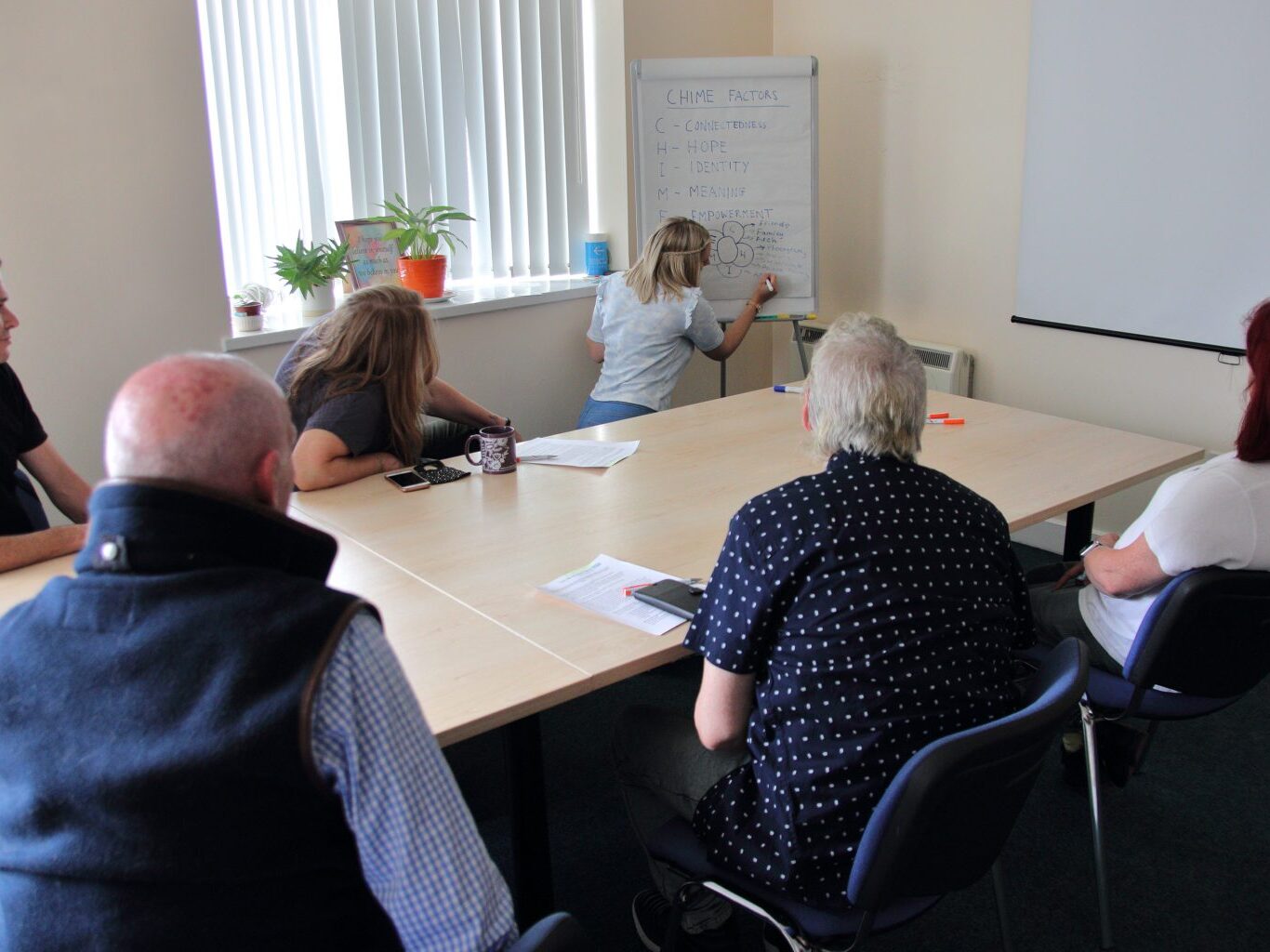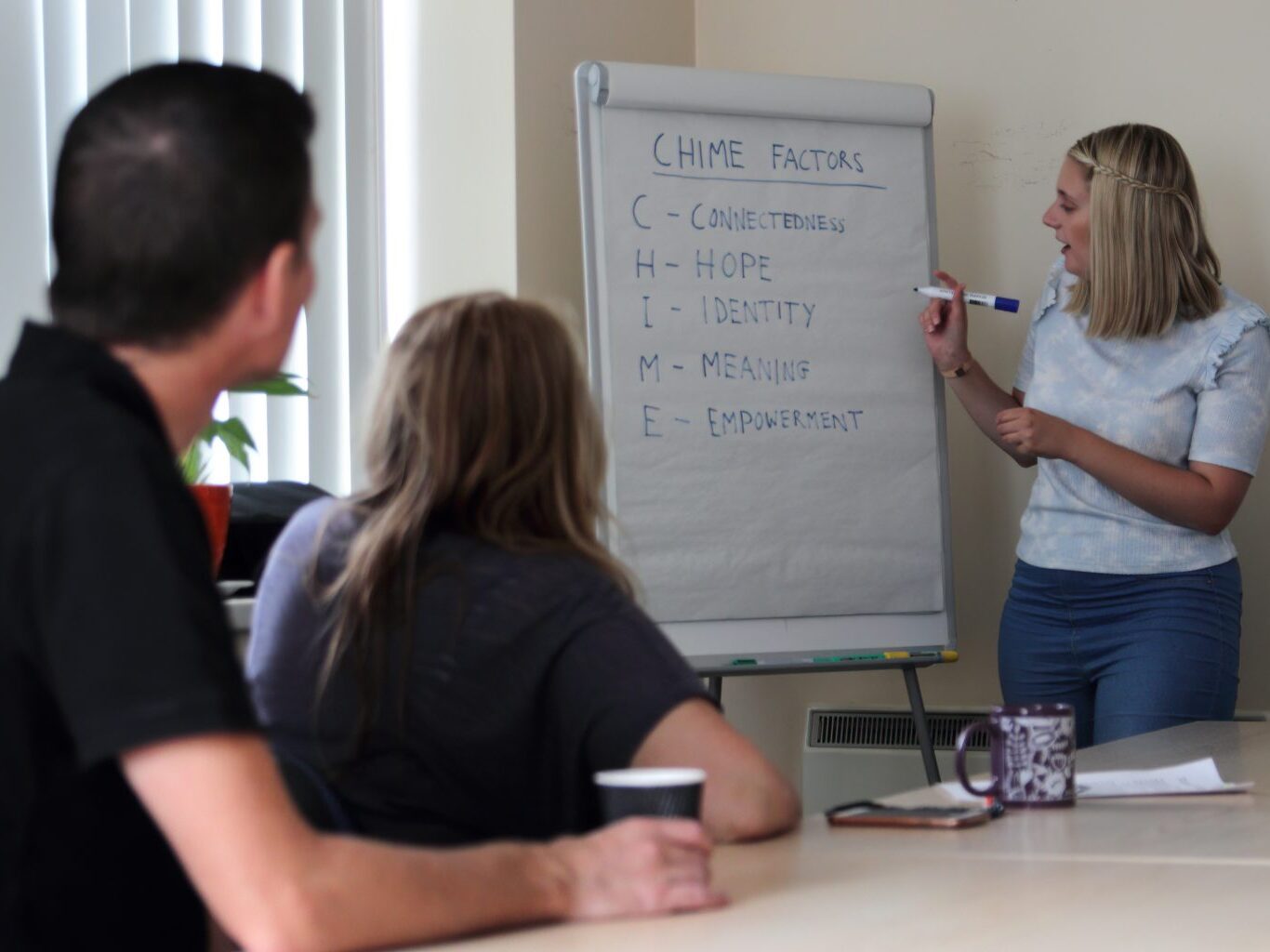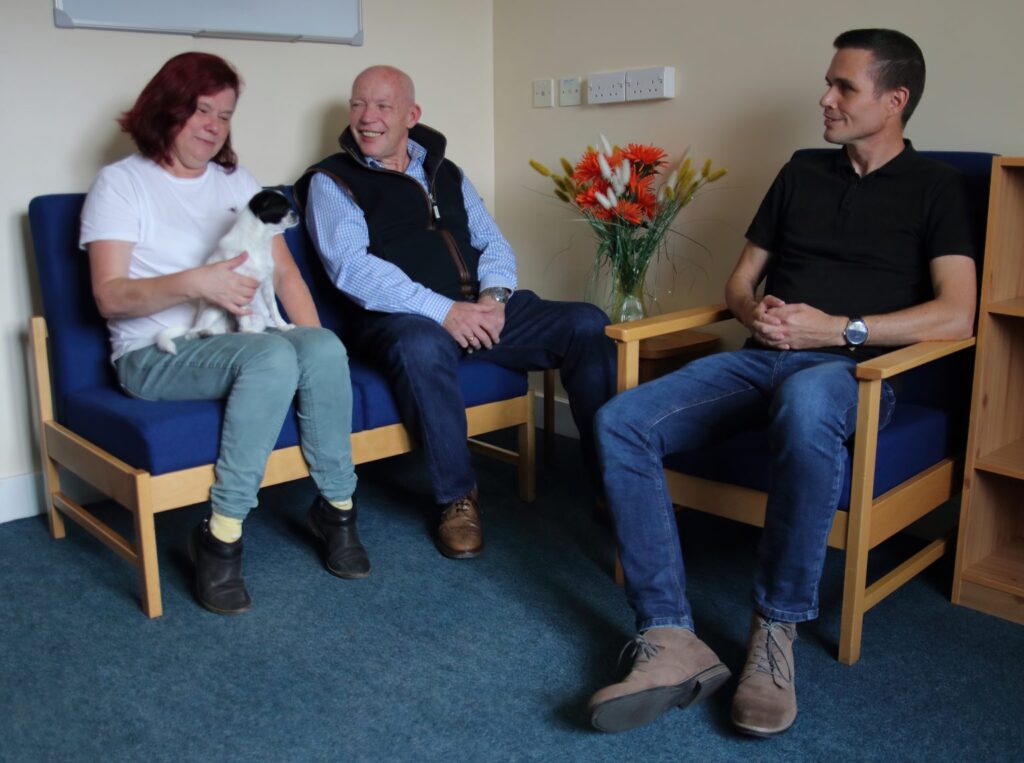What is recovery?
When we think about the word ‘recovery’, most of us think about ‘getting better’. However, in mental health, recovery is a journey towards a meaningful and fulfilling life, achieving a sense of wellbeing. It’s personal and unique to each person; everyone will progress at different speeds, in different directions and to different destinations.
Recovery isn’t necessarily about ‘getting back to normal’ or being symptom-free. It’s about making informed choices about how we want to live our lives.

Free Online Course
You can find out more about recovery in our free online course Introduction to Recovery. You can access this in the Courses section at the top of this page. The course explores the topics of recovery in more detail. It covers topics including personal recovery, the CHIME factors, Spirituality and Positive Psychology.
Personal Recovery
Personal recovery describes the process of building a meaningful and satisfying life, with or without ongoing difficulties or symptoms. This is different to clinical recovery, which refers to the point where symptoms have gone. For example, a person will have recovered from a cold when they stop coughing and sneezing.
Personal recovery is more relevant when thinking about mental health and distress. Often it is not the diagnosed symptoms that are the most troubling thing for people. They may wish to have:
- A greater sense of purpose.
- More understanding of their distress.
- More control over what happens to them
Reducing symptoms or certain feelings by using things like medication and therapy is very important and useful for many people. However, personal recovery goes way beyond treatment. Everyone’s ideas about their own recovery will be different. This is why it can be difficult to describe exactly what recovery is.
Research
Research has been done to discover what personal recovery is. Some key themes were been found. These are things that are important for all of us. They are connectedness, hope, identity, meaning and empowerment. These factors called the CHIME Factors. You can find out more about these in the online courses ‘Introduction to Recovery’ and ‘Recovery the New Me’. You can find these in the Courses section at the top of this page.
Personal recovery can be seen as a journey. People set goals, discover new things, make new relationships and gain control over their lives. Recovery is not about ‘cure’, it may not be anything to do with returning to how a person once was. Wellbeing is a term often used when thinking about recovery. The Oxford English Dictionary defines wellbeing as ‘the state of being comfortable, healthy or happy’. However, much like the term ‘recovery’, this can mean a lot of different things to different people.
Supporters can be really important. They have a massive part to play in being hopeful and encouraging. They don’t impose their ideas of ‘what is right’ for the person. Mental health services should work with the person to support them towards their goals.

Personal Experience
Personal recovery is about reaching a stage in your life where you feel that you are able to live well in spite of your illness or diagnosis. You don’t necessarily have to be clinically recovered and symptom free to have achieved personal recovery. Personal recovery is unique to the individual and people may feel they have reached this at different times. For example, if someone is able to carry out their every life tasks unaided and live independently they may feel that they have reached their personal recovery. For other people, personal recovery may involve more abstract ideas such as being able to feel better about themselves, feeling in control of their life and making decisions independently about their future. The criteria for personal recovery can only be agreed by the individual. While it might help to discuss this with professionals, friends and family, the ultimate decision maker is you.
The ultimate decision maker is you.
After my first hospitalisation and episode of psychosis I was determined that the milestone I wanted to achieve for personal recovery was that from the outside I appeared just like any of my other friends. I didn’t want my diagnosis to hinder the opportunities which I could have in the future. I was determined that I would work, go on holidays, socialise and maintain the relationships I had developed prior to my illness. I was told by some professionals that perhaps this was setting my personal recovery goal too high and I should reconsider, but it was my recovery. I knew what I had to achieve to make me feel satisfied that I was living a fulfilling life. It just might take me longer than others to reach my recovery.
Four years later, I am proud to say that I have reached my personal recovery. Bipolar disorder is still a part of my life but it no longer defines my life. I am able to manage my illness in a way that I can also be in recovery.
Clinical Recovery
Clinical recovery is when a person no longer has the symptoms of whatever illness they have experienced. This is quite easy to think about in terms of physical health. For example, if a person breaks their leg, they will receive treatment to heal the leg. Once the leg is functioning well, the person will have recovered.
Obviously, a clinical recovery is what the majority of people, and healthcare professionals, will be seeking for a physical condition. This is also the case for someone experiencing difficulties with their emotional or mental health. A person experiencing long periods of low mood may want to have some treatment to improve how they feel. Mental health professionals work with experiences, and use a range of evidence based treatments and interventions.
Some people understand mental health in a clinical way. They think of it as an illness with symptoms that has a clinical solution and or cure. However, as mental health is so complex. Viewing recovery in simple terms of ‘problem / cure’ is not helpful for a lot of people.

Personal Experience
People with mental ill health are valued members of society. This belief needs to be validated by society’s perception of the mentally ill, if clinically recovery is to be a real expectation for people with lived experience to aspire to walk towards.
To recover is very dependent on ‘self’ and having an inner strength, which develops a belief in being able to negotiate experiences, while learning and growing. It is not an impossible journey, but it must be achieved (in my opinion) by positive relationships, support, choice, achievement, opportunity, honest reflection and most importantly a realistic vision to strive towards.
To offer and to try to work at recovery is a responsibility. But the journey must be supported by a cohesive message from government, community, business and the health authority. I believe there needs an investment in people and a change in attitudes, to create an equal platform of opportunity and the letting go of the fear of risk.
The diagnosis should not be a convenient safety net that impacts on the present when it is in the past. I believe we need clarity in the message that when we are seen to be in remission. It has the right support in place to move forwards, to sustain a future
Is clinical recovery personal or a medical assessment on a person’s wellbeing? Is it a medical recovery that is sustainable or an outcome? I believe it is very much dependant on the perception people who can nurture a person’s life beyond services. And also a strong care system that has a compassionate understanding of complex individuals lives. The message must not get confused and lose its content for short-term statistics, risk adverse approaches, or be politically undermined for financial gain.
The diagnosis should not be a forever judgement on the formulation! The clinical recovery diagnosis is a professional assessment of wellbeing. That does not remove the journey of trying to overcoming the difficult history of being traumatised.
Personal Experience
If you’d like to share your personal experience, email [email protected] to find out more.